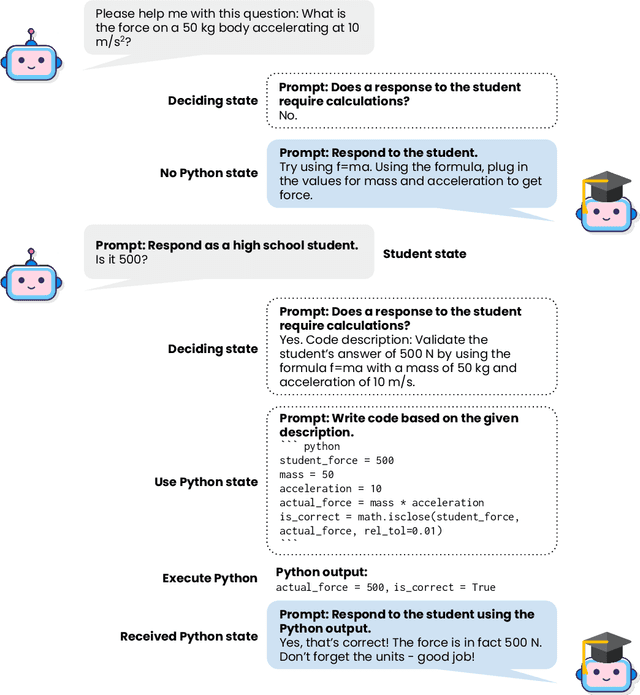Code Soliloquies for Accurate Calculations in Large Language Models
Paper and Code
Sep 21, 2023
High-quality conversational datasets are integral to the successful development of Intelligent Tutoring Systems (ITS) that employ a Large Language Model (LLM) backend. These datasets, when used to fine-tune the LLM backend, significantly enhance the quality of interactions between students and ITS. A common strategy for developing these datasets involves generating synthetic student-teacher dialogues using advanced GPT-4 models. However, challenges arise when these dialogues demand complex calculations, common in subjects like physics. Despite its advanced capabilities, GPT-4's performance falls short in reliably handling even simple multiplication tasks, marking a significant limitation in its utility for these subjects. To address these challenges, this paper introduces an innovative stateful prompt design. Our approach generates a mock conversation between a student and a tutorbot, both roles simulated by GPT-4. Each student response triggers a soliloquy (an inner monologue) in the GPT-tutorbot, which assesses whether its response would necessitate calculations. If so, it proceeds to script the required code in Python and then uses the resulting output to construct its response to the student. Our approach notably enhances the quality of synthetic conversation datasets, especially for subjects that are calculation-intensive. Our findings show that our Higgs model -- a LLaMA finetuned with datasets generated through our novel stateful prompt design -- proficiently utilizes Python for computations. Consequently, finetuning with our datasets enriched with code soliloquies enhances not just the accuracy but also the computational reliability of Higgs' responses.
 Add to Chrome
Add to Chrome Add to Firefox
Add to Firefox Add to Edge
Add to Edge